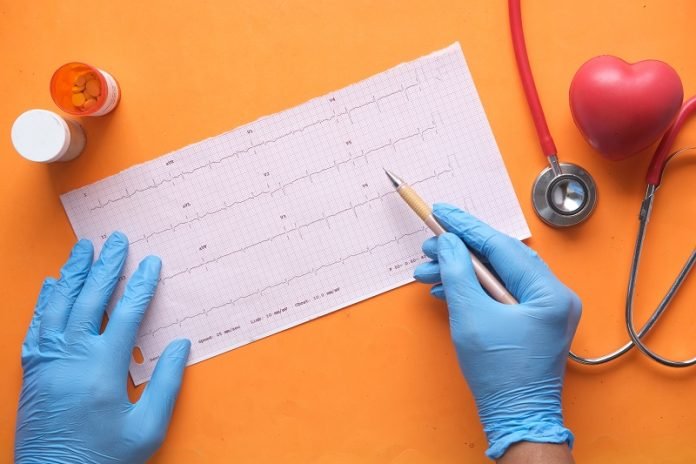
Heart attack, also known as myocardial infarction, is a medical emergency that occurs when the blood flow to the heart is blocked, usually due to a buildup of plaque in the arteries.
This can cause damage to the heart muscle and can be fatal if not treated immediately.
In this article, we will explore the signs and symptoms of a heart attack, including early warning signs, warning signs, and what happens before and after a heart attack.
What are 3 early signs of a heart attack?
Chest pain or discomfort: This is the most common early sign of a heart attack. The pain or discomfort can be mild or severe and can last for a few minutes or several hours.
Shortness of breath: You may feel like you can’t catch your breath, even when you’re resting. This can be a sign that your heart is not getting enough oxygen.
Fatigue: You may feel tired or weak, even if you haven’t done anything strenuous. This can be a sign that your heart is not working properly.
What are 4 warning signs of a heart attack?
Chest pain or discomfort: This is the most common warning sign of a heart attack. The pain or discomfort may feel like a squeezing or pressure in the chest that can radiate to the arms, back, neck, jaw, or stomach.
Shortness of breath: You may feel like you can’t catch your breath, even when you’re resting. This can be a sign that your heart is not getting enough oxygen.
Nausea, vomiting, or indigestion: You may feel sick to your stomach or have an upset stomach. This can be a sign that your heart is not functioning properly.
Sweating: You may break out in a cold sweat, even if you’re not exerting yourself. This can be a sign that your heart is under stress.
How long does your body warn you before a heart attack?
Your body may give you warning signs of a heart attack weeks, days, or hours before it occurs. However, not everyone experiences warning signs, and some people may have a heart attack without any symptoms.
If you have any risk factors for heart disease, such as high blood pressure, high cholesterol, or diabetes, it’s important to talk to your doctor about monitoring your heart health.
Is there any warning before a heart attack?
Yes, there are warning signs that may occur before a heart attack. These warning signs may include chest pain or discomfort, shortness of breath, nausea, vomiting, indigestion, fatigue, and sweating.
However, not everyone experiences warning signs, and some people may have a heart attack without any symptoms.
What is a mild heart attack?
A mild heart attack, also known as a silent heart attack or a small heart attack, is a heart attack that is not as severe as a typical heart attack.
It may not cause significant damage to the heart muscle and may not produce any symptoms or may only produce mild symptoms.
However, even a mild heart attack requires immediate medical attention and can be a warning sign of more severe heart disease.
What is a pre heart attack?
A pre-heart attack, also known as unstable angina or acute coronary syndrome, is a condition that occurs when the blood flow to the heart is restricted but does not cause permanent damage to the heart muscle.
Symptoms may include chest pain or discomfort, shortness of breath, sweating, and nausea. A pre-heart attack requires immediate medical attention and can be a warning sign of a more severe heart attack.
How can I test myself for a heart attack?
You cannot test yourself for a heart attack. If you think you may be having a heart attack, call 911 or your local emergency number immediately.
It’s important to seek medical attention as soon as possible to increase the chances of survival and minimize damage to the heart muscle.
How do you feel after a mild heart attack?
After a mild heart attack, you may feel tired, weak, and short of breath. You may also experience chest pain or discomfort, and you may feel anxious or depressed.
It’s important to follow your doctor’s instructions for recovery, including taking medication, making lifestyle changes, and attending cardiac rehabilitation.
Conclusion
A heart attack is a serious medical emergency that requires immediate attention.
Early warning signs of a heart attack may include chest pain, shortness of breath, and fatigue, while warning signs may include nausea, vomiting, and sweating.
Your body may warn you of a heart attack weeks, days, or hours before it occurs, but not everyone experiences warning signs.
It’s important to seek medical attention as soon as possible if you think you may be experiencing a heart attack.
Remember, prompt treatment can improve your chances of survival and minimize damage to the heart muscle.
If you care about heart health, please read studies about the best time to take vitamins to prevent heart disease, and scientists find how COVID-19 damages the heart.
For more information about heart health, please see recent studies about Aspirin linked to a higher risk of heart failure, and results showing this drug could reduce heart disease, fatty liver, and obesity.
Copyright © 2023 Knowridge Science Report. All rights reserved.



